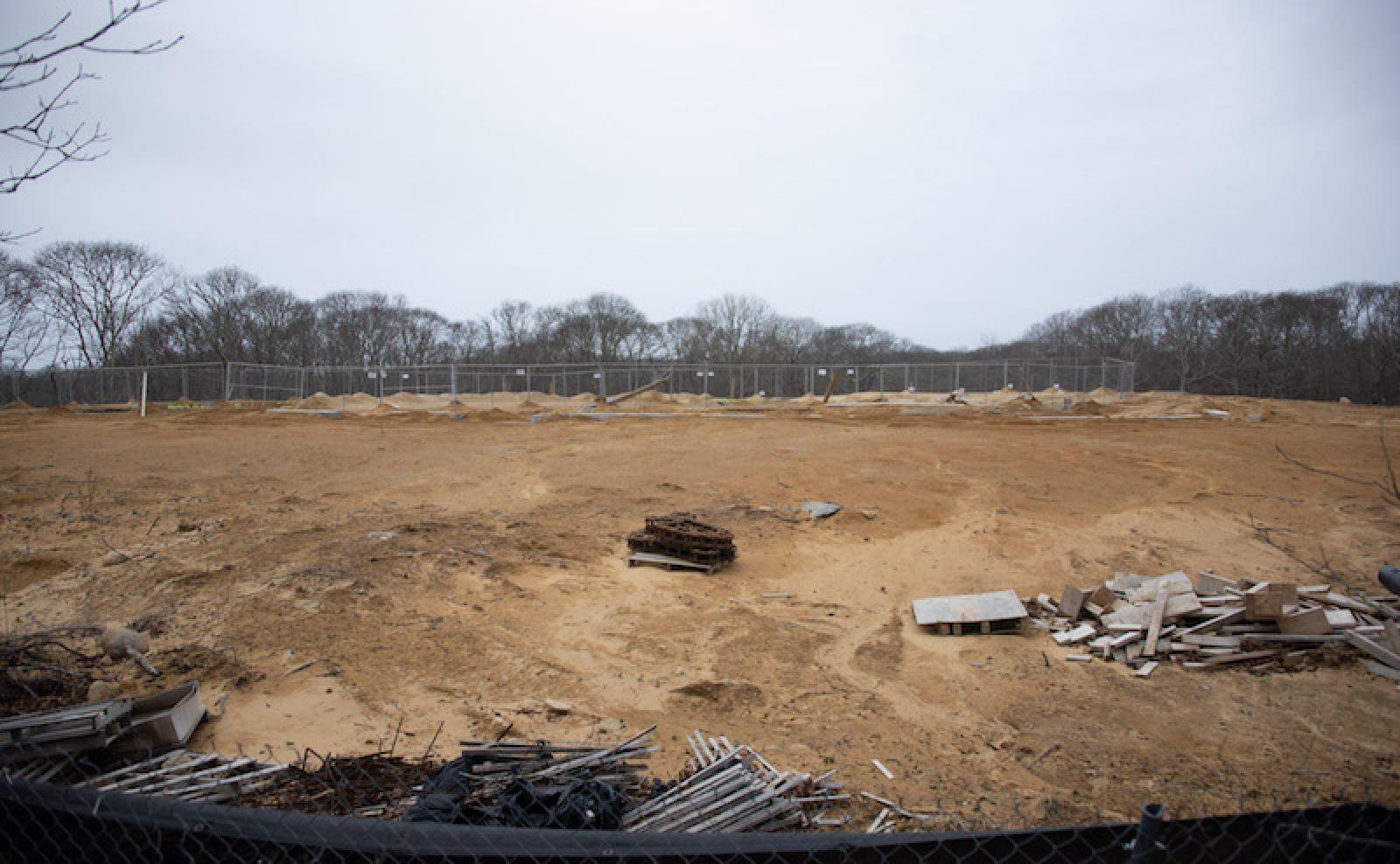The Wampanoag Tribe of Gay Head (Aquinnah) is asking the U.S. Court of Appeals First Circuit to reverse last year’s ruling by a U.S. District Court judge who said the tribe must obtain local and state building permits before it can build a class II gaming facility.
The June 2019 ruling from the Hon. Dennis Saylor 4th has left the unfinished bingo hall project in limbo for the past seven months, with attorneys for the tribe and the town retreating to law offices to prepare for yet another battle in the appellate court.
In a mountainous, 177-page opening brief filed on Jan. 21, the tribe argues, among other things, that Judge Saylor’s ruling threatens its economic livelihood and fails to recognize tribal sovereignty. Attorneys for the tribe argue strenuously that the federal Indian Gaming Regulatory Act (IGRA), which has broad jurisdiction over tribal gaming facilities, makes state and local permitting regulations unnecessary.
“The crux of this appeal is whether IGRA preempts commonwealth and local laws and regulations regarding the construction, occupancy and operation of the tribe’s gaming facility, which laws and regulations are repugnant to the comprehensive, sophisticated regulatory scheme established in IGRA,” the tribe’s summary of argument reads in part.
The latest legal clash between the town and tribe dates to 2017, when the Court of Appeals First Circuit reversed a 2015 decision by Judge Saylor, who found the tribe could not build a gambling hall on tribal lands in Aquinnah under the terms of a land claims settlement it had signed with the town and a group of taxpayers in the 1980s. In a procedural lapse following the reversal, which he later acknowledged and corrected, Judge Saylor did not immediately enter final judgment in favor of the tribe. In their brief, tribal attorneys seized on the issue.
“The district court . . . never entered judgment in favor of the tribe as instructed by [the court of appeals],” the brief states “Instead, the district court waited. And waited. And waited.”
The problem came to light late last winter when the tribe cleared four acres of land off Black Brook and State Roads in order to begin construction on the planned 10,000-square-foot electronic bingo hall. The town returned to U.S. District Court, asking Judge Saylor to enter final judgment with the caveat that the tribe local permits were still required. Town attorneys argued that while IGRA regulates gaming inside the facility, the town still had the authority to regulate the building itself.
After a hearing in Boston, Judge Saylor agreed.
The tribe is now appealing that decision to the same court that sided with them in 2017. The brief makes forceful legal and economic claims.
“The [entry of final judgment], if allowed to stand, will eviscerate the United States’ and tribe’s jurisdiction over the tribe’s Indian lands, devastating the tribe’s ability to generate employment opportunities for its tribal members and the community, and its ability to generate governmental revenue from gaming, which revenue is desperately needed in order for the tribe to fulfill Congress’ intended goals of promoting tribal economic development, self-sufficiency, and strong tribal government,” attorneys write.
They argue that Judge Saylor’s decision sets a dangerous precedent because it separates the gaming and construction aspects of the facility, which they say could have wide-ranging implications — potentially opening the door for towns to interfere with tribal gaming rights elsewhere.
The brief also includes a number of procedural claims, including that the U.S. District Court should not have heard the town’s argument for the entry of final judgment because the 150-day statutory time limit had passed.
A hearing date has not been set.
Whatever the Appeals Court decides is expected to bring an end to the legal standoff, since the U.S. Supreme Court has already declined to hear the case.
Meanwhile, the bingo hall site in Aquinnah has been cleared of trees and scraped of topsoil but remains unoccupied and fenced-off, save for a construction trailer and equipment.







Comments (26)
Comments
Comment policy »